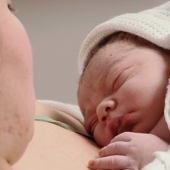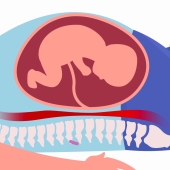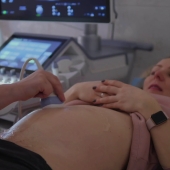Pregnancy can be scary and confusing. We spoke to a clinical professor of obstetrics, gynecology, and reproductive sciences to get the facts.
1. Women only need to eat about 300 more calories a day during pregnancy. "Eating for two" is a bit of a myth.
2. The act of sex won't induce labor. However, semen, which is rich in prostaglandin, can contract uterine smooth muscle. This reaction may feel similar to labor.
3. Speaking of sex, the baby does not get poked while you're doing it. The cervix remains closed until the very end of the pregnancy. So the baby is basically floating in an amniotic fluid balloon. If anything comes toward the uterus, the "balloon" will bounce it away.
4. A male fetus will get erections in the womb. It will not make sperm though. A female fetus forms its eggs in utero.
5. Girls have their highest number of eggs in utero. By the time they are born, they'll have lost some of their eggs.
6. The length of a pregnancy is typically measured from the first day of your last period - not from the date of conception. You usually conceive about two weeks into your menstrual cycle.
7. In utero, a baby's lungs are filled with amniotic fluid. By the second trimester, the fluid is mostly their own pee. A number of stimuli cause newborns to clear most of this fluid naturally. Suction may be used as well.
8. Babies pee in the womb. A small percentage pass their first poo, called meconium, while still in the womb.
9. Some women experience increased sex drive during pregnancy.
10. Babies can hear inside the womb. After birth, newborns can even recognize songs heard frequently while in utero, according to a 2013 University of Helsinki study.
11. Pregnant women pee a lot for a number of reasons. One is hormonal changes during pregnancy. Another reason is the uterus pressing on the bladder.
12. Moderate exercise is very safe during pregnancy. It's even recommended for women who are usually active. Just don't overdo it to where you're overheated, uncomfortable, or contracting.
13. It is possible to be pregnant for over a year. This can happen through a process called superfetation. It's where a woman gets pregnant while still being pregnant. It's extraordinarily rare.
- 13115 views













